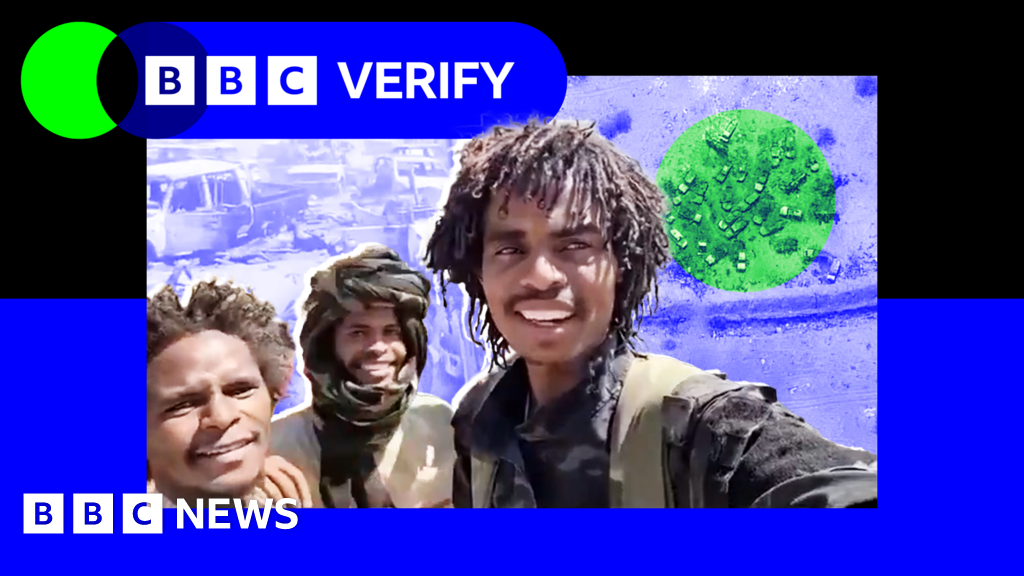'Our job is only killing' - how Sudan's brutal militia carried out a massacre

Sudan: Evidence of Massacres Emerges from El-Fasher as ICC Investigates
Graphic videos and satellite imagery have emerged revealing evidence of massacres and atrocities committed in the Sudanese city of El-Fasher, Darfur, following its capture by the Rapid Support Forces (RSF) in October. The International Criminal Court (ICC) has launched an investigation into alleged war crimes and crimes against humanity perpetrated by the paramilitary group.
El-Fasher, the last stronghold in Darfur held by the Sudanese military, fell after a prolonged siege. The RSF, which has been engaged in a devastating war with the Sudanese army since 2023, is accused of widespread human rights abuses, echoing the brutal legacy of the Janjaweed militia from which it originated.
Siege and Blockade Preceded Atrocities
For nearly two years, El-Fasher was under siege by the RSF. Beginning in August, the RSF intensified its efforts, constructing a massive berm, a raised sand barrier, around the city's perimeter. This blockade effectively cut off access routes, preventing the entry of vital humanitarian aid and essential supplies.
Reports detail a series of attacks during the siege, including a deadly assault on a mosque that killed 78 people on September 19. The UN also reported that 53 more were killed in drone and artillery strikes on a displacement camp in October. Videos obtained by BBC Verify suggest the RSF actively sought to prevent food and supplies from reaching the besieged population, with reports of civilians being brutally punished for attempting to smuggle goods into the city.
Massacre Aftermath Documented
Following the military's withdrawal and the RSF's seizure of the main base on October 26, reports of atrocities began to surface. Graphic videos showed unarmed civilians being gunned down. One particularly disturbing video showed the aftermath of a massacre at a university building, where dozens of bodies lay scattered. In the video, a fighter is seen shooting an elderly man who was sitting amongst the bodies.
Satellite imagery analysis by the Yale Humanitarian Research Lab corroborated the accounts of executions. Analysts identified "clusters" consistent with human bodies and discoloration potentially caused by blood in areas of El-Fasher. Eyewitness accounts further described the summary executions of civilians, including women.
RSF Commander Implicated in Killings
A key figure identified in the violence is an RSF commander known online as Abu Lulu. Verified videos show him executing unarmed captives. One eyewitness reported that Abu Lulu ordered his men to kill "several innocent people, including children." In one video, an RSF soldier attempts to intervene as Abu Lulu prepares to execute an injured man, who pleads for his life. Abu Lulu dismisses the man's pleas, stating, "I will never have mercy. Our job is only killing," before shooting him.
Another video showed Abu Lulu killing a group of nine unarmed captives. The bodies were left lying execution-style on the ground. Many of those involved in the killings wore RSF badges, including the group who celebrated the massacre as a "genocide."
RSF Response and Damage Control
In the wake of the documented atrocities, RSF leader Gen Mohamed Hamdan Dagalo acknowledged "violations" by his troops and announced an investigation. The UN reported that the RSF had arrested some suspects, including Abu Lulu, who was shown in a carefully staged video being led into a prison cell. However, analysts at Yale accused the RSF of attempting to cover up the atrocities, citing satellite imagery showing the removal of objects consistent with bodies and the identification of graves near a children's hospital.
Simultaneously, the RSF launched a social media campaign attempting to reframe the narrative, showcasing fighters distributing aid and purporting to show humane treatment of prisoners of war. Despite these efforts, the actions in El-Fasher have sparked international condemnation.
Historical Context and Implications
The violence in El-Fasher underscores the deep-seated ethnic tensions and the legacy of conflict in Darfur. The RSF's origins in the Janjaweed militia, responsible for the Darfur genocide in the early 2000s, raise concerns about a repeat of past atrocities. "The events in El-Fasher are a stark reminder of the unresolved issues that fuel conflict in Sudan," says Dr. Suliman Baldo, a Senior Policy Advisor at the Enough Project, focusing on Sudan. "The international community must prioritize accountability for these crimes and address the root causes of the conflict to prevent further atrocities."
The ongoing conflict between the RSF and the Sudanese army has created a humanitarian crisis, with millions displaced and facing severe food shortages. "The siege of El-Fasher and the subsequent violence have exacerbated an already dire situation," explains Jan Egeland, Secretary General of the Norwegian Refugee Council. "Humanitarian access must be guaranteed to prevent further loss of life and suffering. The international community must step up its efforts to provide aid and support to the affected population."
The BBC approached the RSF for a response to the allegations contained in this investigation, but did not receive a reply.
Originally sourced from: BBC News Africa
